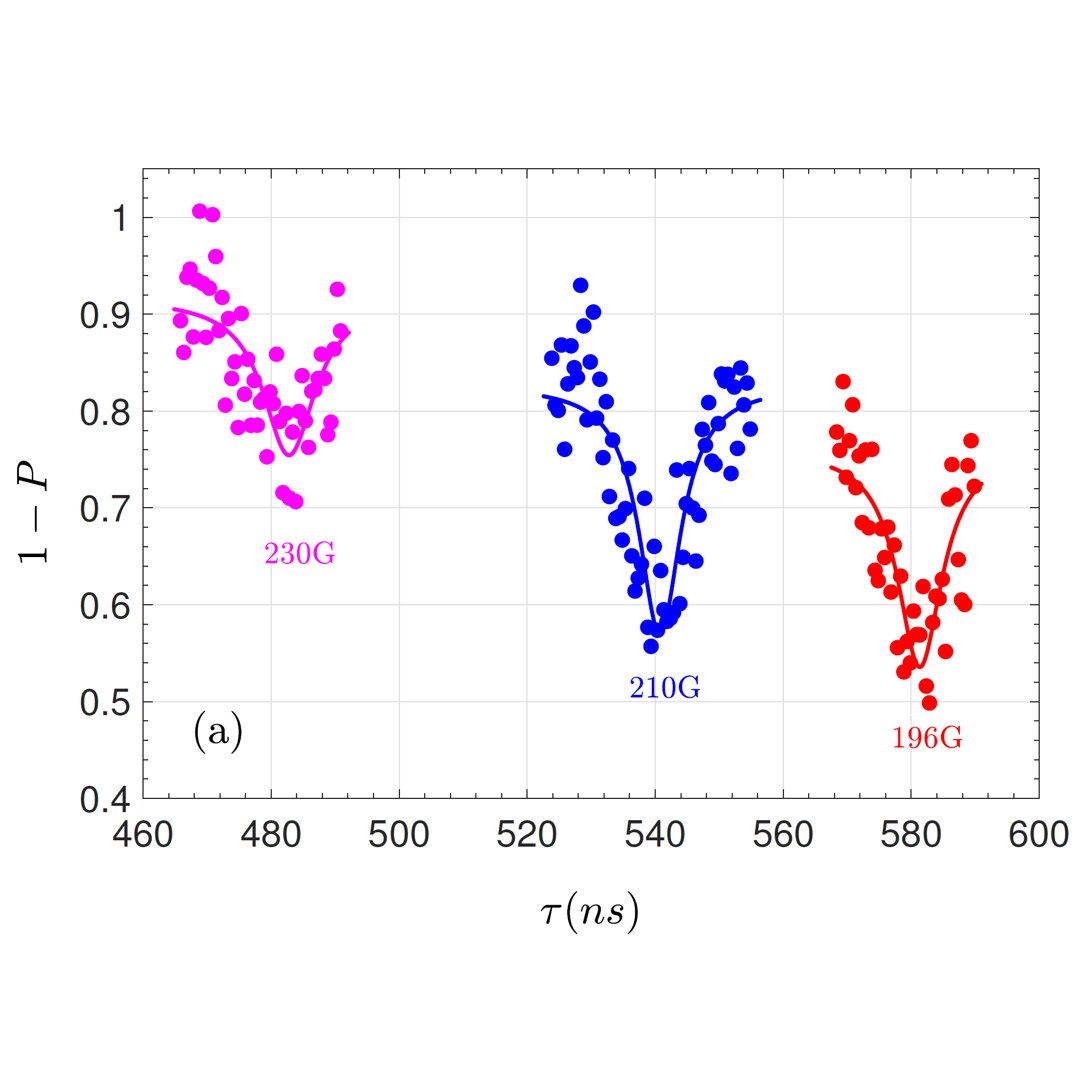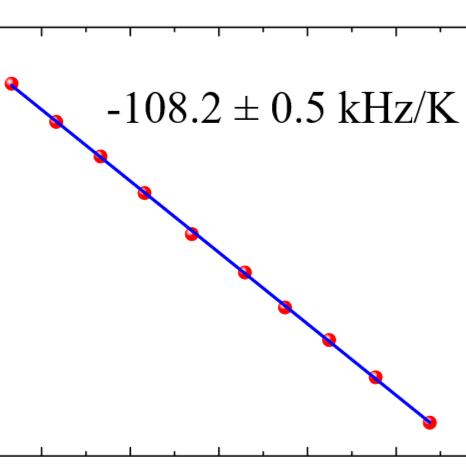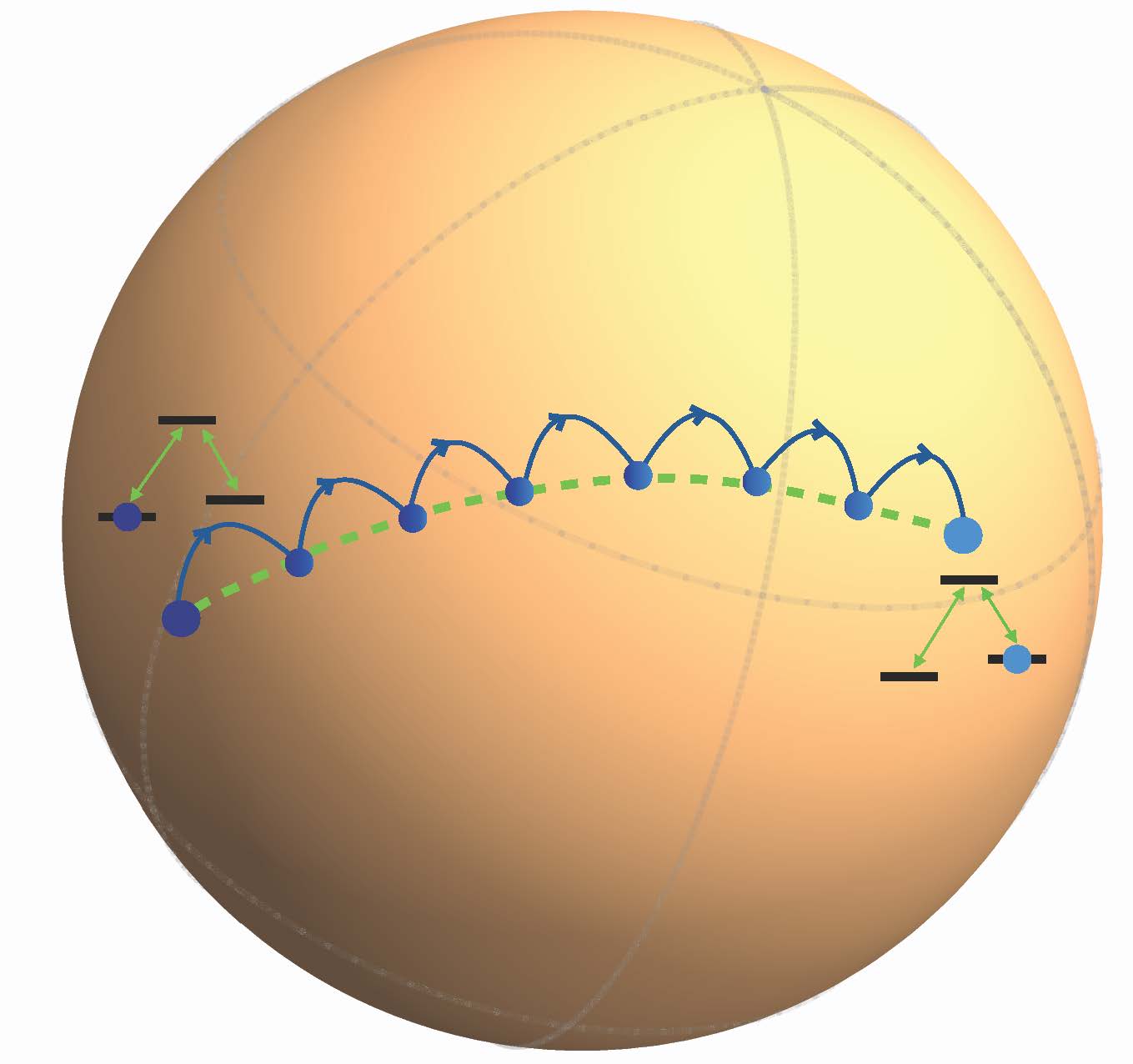
Puhao Cao, Ralf Betzholz, Shaoliang Zhang, and Jianming Cai
The implementation of quantum entangling gates between qubits is essential to achieve scalable quantum computation. Here, we propose a robust scheme to realize an entangling gate for distant solid-state spins via a mechanical oscillator in its thermal equilibrium state. By appropriate Hamiltonian engineering and usage of a protected subspace, we show that the proposed scheme is able to significantly reduce the thermal effect of the mechanical oscillator on the spins. In particular, we demonstrate that a high entangling gate fidelity can be achieved even for a relatively high thermal occupation. Our scheme can thus relax the requirement for ground-state cooling of the mechanical oscillator, and may find applications in scalable quantum information processing in hybrid solid-state architectures.

Z-J. Shu, Z.-D. Zhang, Q.-Y. Cao, P.-C. Yang, M. B. Plenio, C. Mueller, J. Lang, N. Tomek, B. Naydenov, L. P. McGuinness, F. Jelezko, and J.-M. Cai
An important challenge that remains to be addressed in quantum sensing are spurious higher order resonances in current dynamical decoupling sequences as they can lead to the misidentification of nuclei or of different frequency components of external signals. Here we overcome this challenge with engineered quantum sensing sequences that achieve both, enhanced robustness and the simultaneous suppression of higher order harmonic resonances.

Yu Zhou, Junfeng Wang, Xiaoming Zhang, Ke Li, Jianming Cai, Wei-bo Gao
Quantum sensors with solid state electron spins have attracted considerable interest due to their nanoscale spatial resolution. A critical requirement is to suppress the environment noise of the solid state spin sensor. Here we demonstrate a nanoscale thermometer based on silicon carbide (SiC) electron spins. We experimentally demonstrate that the performance of the spin sensor is robust against dephasing due to a self protected machanism. The SiC thermometry may provide a promising platform for sensing in a noisy environment ,e.g. biological system sensing.

Musang Gong, Min Yu, Ralf Betzholz, Yaoming Chu, Pengcheng Yang, Zhenyu Wang and Jianming Cai
In a solid-state spin system, we experimentally demonstrate a protocol for quantum-state population transfer with an improved efficiency compared to traditional stimulated Raman adiabatic passage (STIRAP). Using the ground state triplet of the nitrogen-vacancy center in diamond, we show that the required evolution time for highfidelity state transfer can be reduced by almost one order of magnitude. Furthermore, we establish an improved robustness against frequency detuning caused by magnetic noise as compared to STIRAP. These results provide a powerful tool for coherent spin manipulation in the context of quantum sensing and quantum computation.
版权所有 Copyright(C) 2018 华中科技大学量子传感与量子测量国际联合实验室